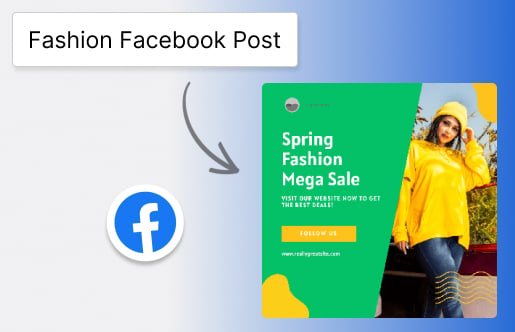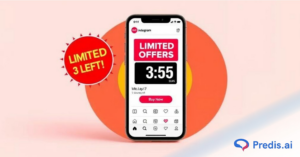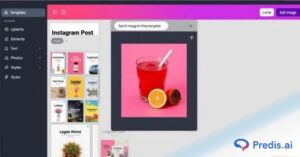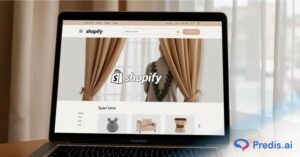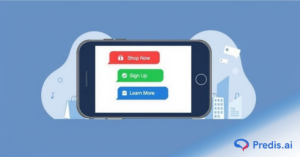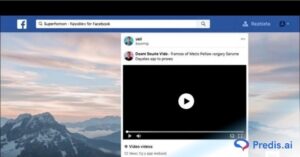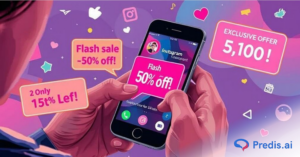Advertisers today must produce more ad variations than ever while still standing out in crowded feeds. Fortunately, AI for Facebook ad creatives has matured enough to make that easier. It speeds up idea generation, automates repetitive creative tasks, and surfaces data-driven variations that truly resonate with audiences.
AI tools can now generate headlines, write persuasive ad copy, create scroll-stopping visuals, and even predict which creative will perform best. This lets marketers focus on strategy, audience, and testing – rather than spending hours designing every piece manually.
However, using AI effectively requires more than pushing a button. It takes structure, clear goals, and a repeatable workflow. This guide walks you through everything – from strategy to production – complete with prompts, frameworks, and compliance checks.
Choosing the Right AI Tools for Facebook Ad Creatives
Using the right AI tools for each task saves time and improves quality.
- Copy & Headlines:
- ChatGPT, Jasper, Predis.ai – great for tone consistency and fast headline variations.

- Static Images & Banners:
- Canva Magic Studio, Adobe Firefly, AdCreative.ai – ideal for quick, visually appealing images.

- Video & UGC-Style Clips:
- Predis.ai, Pictory, Synthesia, Runway – perfect for producing short, engaging ad videos.
- Automation & Optimization:
- Revealbot, Madgicx – automate scaling, A/B testing, and budget allocation.

Use these tools at different stages of your creative workflow: write → design → produce → test → scale.
The Proven Workflow for AI-Powered Facebook Creatives
Set Clear Goals and Audience
Start by defining your campaign objective – awareness, traffic, leads, or purchases. Then, set measurable KPIs like CTR, CPC, CPA, or ROAS. For instance, aim to boost CTR by 20% within two weeks for a prospecting audience.
Create a Creative Brief for AI
Your AI output is only as good as your input. Write a concise creative brief with your brand voice, audience details, offer, and CTA.
Example brief:
“Modern, helpful brand voice. Audience: busy moms 30–45 in urban India. Product: stain-resistant kitchen apron. Benefit: saves time cleaning and looks stylish. CTA: Shop now – 20% off first purchase.”
This brief becomes your guiding document for every AI tool you use.
Generate Copy Variations Using Smart Prompts
Use prompts that are structured and specific to your campaign needs.
Headline prompt:
“Using the brief: [paste brief]. Generate 12 short Facebook ad headlines (max 25 characters). Tone: friendly, urgency optional. Include one with emoji and one with a question.”
Primary text prompt:
“Using the brief: [paste brief]. Write 8 variations of Facebook primary text (90–125 characters) that include benefit, quick social proof, and a CTA. Keep language simple and conversational.”
These prompts help AI produce ready-to-test copy variations that align with your brand voice.
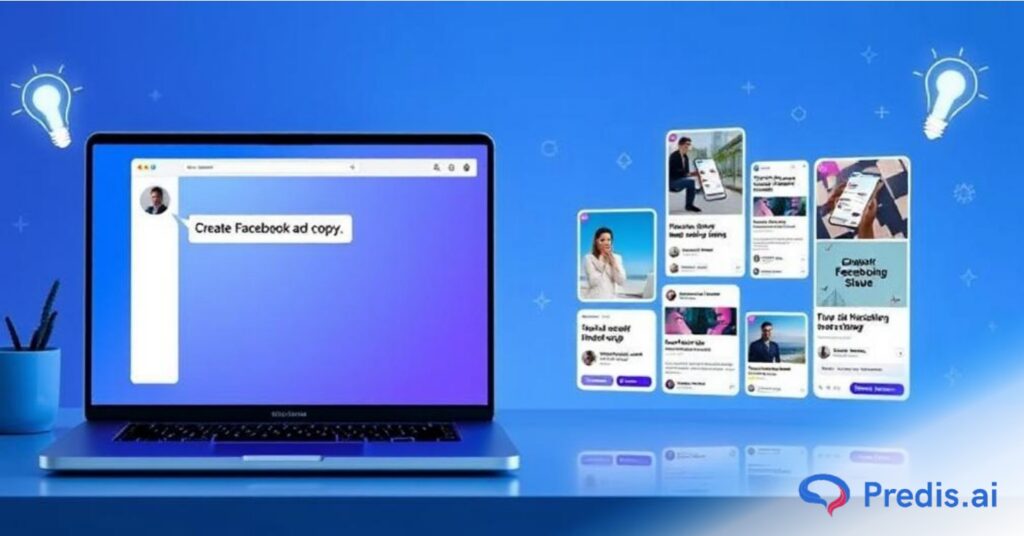
Create Visuals and Videos
For images or video creatives, clarity in your prompts makes a huge difference.
Static image prompt:
“Create a lifestyle photo of a 35-year-old woman in a modern kitchen wearing a stylish stain-resistant apron while smiling and wiping a spill from a marble counter. Style: bright, natural light, on-brand colors teal and warm orange. Composition: mid-shot, clean background. Deliver three variations: product-in-use, flat-lay, and close-up texture shot.”
Video script prompt:
“From brief: write a 15-second Facebook video script showing problem → product in use → benefit. Include on-screen text cues and an end card with CTA ‘Shop 20% Off’.”
By giving AI clear, visual details, you ensure brand consistency and quality output.
Review for Compliance and Branding
Before launching, make sure your creatives comply with Meta’s ad policies. Check copyright, imagery licensing, and ensure nothing violates community guidelines. Always add a final human review to maintain tone, authenticity, and brand integrity.
Test and Iterate
Run your first test with multiple combinations (e.g., 3 headlines × 3 images × 2 CTAs = 18 combinations). Keep budgets equal for 3–5 days and track CTR, CPM, and CPC to find winners. Once winners emerge, scale them using automated rules or manual optimization.
How to Measure Results: The KPI Map?
Tracking the right metrics is key to optimizing performance.
- Early Stage (Awareness): Focus on CTR, reach, and engagement rate.
- Middle Stage (Engagement): Track landing page CTR, scroll depth, and time on page.
- Conversion Stage: Focus on CPA, purchase ROAS, and cost per landing page view.
Once you identify high-performing creatives, duplicate and scale them gradually while refreshing weaker ones with new AI-generated variants.
Prompt Bank: Ready-to-Use Examples
Headlines:
- “No more stains — 20% off!”
- “Save time, look great.”
- “Moms love this apron.”
Primary text:
“Tough spills? Meet the apron that wipes clean in seconds. Lightweight, stylish, and 20% off today. Shop now.”
Image prompt:
“Product shot: woman using apron, sunlight, warm kitchen, close-up on fabric texture, minimal text overlay: ‘20% off’.”
These examples make it easy to start generating ads without guesswork.
Creative Specs and Accessibility Checklist
Follow these technical specs to ensure Facebook approves and promotes your ads properly.
- Image sizes: 1080×1080 (square), 1200×628 (landscape), 1080×1920 (story/reel).
- Video length: 6–15 seconds for awareness; up to 30 seconds for storytelling.
- Text overlay: Keep under 20% of the image area.
- Subtitles: Always include captions—many users watch with sound off.
- Color contrast: Use high-contrast colors to ensure readability.
A creative that’s both visually and technically optimized performs significantly better.
Brand Safety, Legal, and Ethical Use of AI
AI speeds up production but also brings risks you should manage carefully.
- Copyright: Ensure all AI tools you use provide commercially licensed outputs.
- Authenticity: Avoid misleading visuals or deepfake-style videos.
- Privacy: Never generate personal likenesses without consent.
- Brand control: Always keep a review process in place to avoid tone or cultural missteps.
A responsible workflow protects your brand reputation and ensures long-term trust with audiences.
Advanced Tips for Smarter AI Use
- Combine multiple AI tools – use one for copy, another for visuals – to maintain variety.
- Automate creative rotation to combat ad fatigue.
- Use AI analytics to find top-performing creative elements.
- Always include a human editor to polish tone and accuracy.
AI is best used as a creative assistant – not a full replacement.
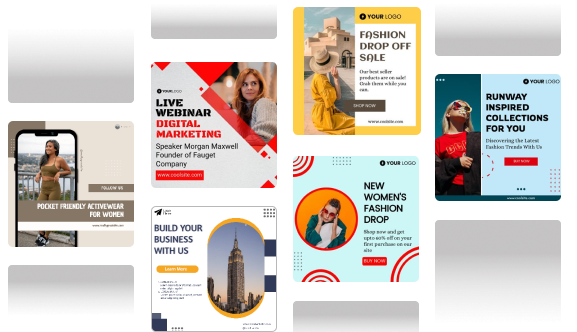
Essential Metrics Dashboard
Monitor these key metrics weekly during testing and scaling:
- Impressions and Reach
- CTR and CPC
- CPM and CPA
- Conversion Rate
- ROAS
- Creative-level performance attribution
Tracking these numbers ensures data-driven creative decisions rather than gut instincts.
Final Pre-Launch Checklist
- Creative brief completed
- 8–12 ad copies generated
- 6–10 visuals or videos produced
- Accessibility and subtitles added
- Licensing confirmed
- Test structure set
- Scaling rules defined
Following this ensures your AI-powered campaign runs smoothly from day one.
Conclusion
AI for Facebook ad creatives is no longer a future trend – it’s today’s competitive edge. It helps marketers produce high-quality ads faster, with real data guiding every decision.
Start small. Test fast. Keep what works. AI will handle the heavy lifting, but your creativity and human touch will keep the brand authentic and emotionally engaging.
If you build your next Facebook campaign using this workflow – brief, generate, test, and scale – you’ll not only save time but also see measurable growth in conversions and ROI.



